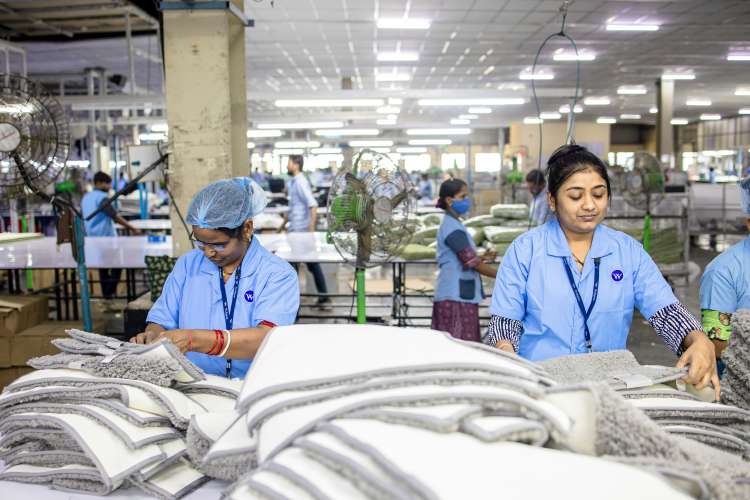As India aspires to become a global economic powerhouse, improving the ease of doing business has become central to its economic policy. In recent years, the country has made steady progress in this direction, reflected in streamlining several regulatory processes and rationalising compliance frameworks.
However, the road ahead is more complex. A renewed push is underway to further reduce the bureaucratic burden, anchored by the National Single Window System (NSWS) and the Jan Vishwas 2.0 decriminalisation initiative. Both signal a shift towards a more investor-friendly, transparent business environment. But the path must be navigated with caution to avoid regulatory dilution, especially in sectors critical to public health and safety.
READ | Trump’s Fed chair gambit could sink dollar credibility
The single window system
The NSWS, launched in 2021 by the Ministry of Commerce and Industry, is designed as a one-stop digital portal to assist businesses in identifying, applying for, and tracking regulatory approvals. The portal integrates 32 central ministries and departments along with 29 state governments. As of mid-June 2025, it facilitates access to 671 central and 6,880 state-level approvals, according to official data.
Recent efforts have focused on mapping and consolidating all approvals, registrations, renewals, and compliance obligations across ministries to avoid duplication and ensure clarity. The system aims to end the long-standing maze of multi-portal filings and office visits, replacing them with time-bound, transparent digital processes.
The initiative is spearheaded by the Department for Promotion of Industry and Internal Trade (DPIIT), which has sought feedback from industry stakeholders to improve user experience. Based on this feedback, the government is reportedly considering eliminating certain redundant approvals altogether, particularly those not deemed essential in ministry-wise compliance lists.
To date, the NSWS has enabled over 44,000 approvals, suggesting some early success in accelerating project clearances. Schemes like the Vehicle Scrapping Policy, PLI for High-Efficiency Solar PV Modules, and the Indian Footwear and Leather Development Policy are also being onboarded, indicating broader institutional alignment.
Balancing reform with responsibility
Parallel to the NSWS is the Jan Vishwas Bill 2.0, which seeks to decriminalise over 100 legal provisions across sectors to reduce bureaucratic friction. In her Budget speech, Finance Minister Nirmala Sitharaman reaffirmed the government’s intent to decriminalise minor, technical, and procedural offences to foster a more business-friendly environment.
This effort builds on the original Jan Vishwas Bill passed in 2023, which was widely seen as a step toward reducing the threat of criminal liability for inadvertent errors—especially for small and medium enterprises. The new version seeks to widen its scope significantly.
Yet, the broader implications of such blanket decriminalisation demand scrutiny. While many outdated regulations do deserve rationalisation, others play a critical role in sectors where ethical lapses can have life-threatening consequences.
Pharma, food, and construction
The pharmaceutical sector is a case in point. India’s reputation as the “pharmacy of the world” is under increasing pressure, with recent scandals—such as the deaths of children from contaminated cough syrups—raising serious concerns about manufacturing standards and regulatory enforcement. Further decriminalising violations in this space may undermine public trust and damage India’s standing in tightly regulated export markets like the EU and US.
Similar concerns arise in food processing and construction. Relaxed enforcement of quality norms in these sectors could lead to substandard products or unsafe infrastructure, with potentially fatal outcomes.
Moreover, a blanket shift from criminal penalties to financial fines may disproportionately favour large companies with deep pockets, enabling them to treat fines as a cost of business, while small firms continue to struggle with compliance overheads.
Ease of doing business: Reform without compromise
The core challenge lies in striking the right balance. India needs to foster a business environment that is efficient and predictable—key to attracting foreign investment and stimulating entrepreneurship. But this must not come at the expense of ethical safeguards, public health, and safety.
Global best practices offer a guide. Countries like Singapore and Germany have demonstrated that it is possible to combine ease of doing business with stringent regulatory oversight. Both rank highly on global business indices while enforcing robust quality standards and consumer protections.
For India, the opportunity lies in calibrated reform: retain criminal provisions where public interest is directly at stake, strengthen regulatory capacity to enforce standards, and simplify compliance for routine business activities. The goal should be not just ease of doing business—but doing business right.

